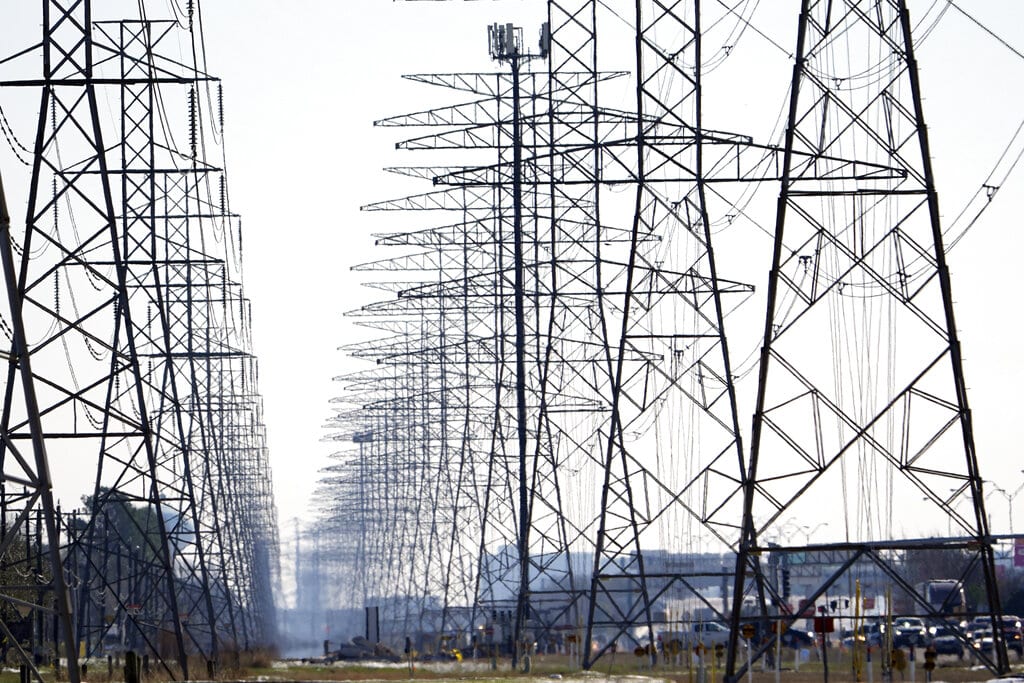AUSTIN — The Electric Reliability Council of Texas fired its embattled CEO late Wednesday on the same day a congressional oversight panel launched an investigation into last month’s power outages in Texas, which left millions shivering in their homes without power as temperatures plunged below freezing.
Powerful state leaders including Gov. Greg Abbott and Lt. Gov. Dan Patrick had supported calls for ERCOT’s chief executive, Bill Magness, to resign following the extended outages during last month’s deep freeze.
On Wednesday night, ERCOT’s board of directors voted to fire Magness, who had earned $803,000 a year. He was given a 60-day termination notice, which was consistent with his contract.
ERCOT officials said Magness would continue as president and CEO during the transition period and would work with state leaders and regulators on “potential reforms to ERCOT.”
The nonprofit manages the state’s power grid and had been blamed by lawmakers for the outages last month.
The ERCOT board will immediately begin searching for Magness’ replacement.
Patrick tweeted his reaction to Magness’ firing: “2 days ago, I called on ERCOT and PUC leaders to resign. Good news — now they are both gone. Next — one of my top 31 priorities — reforming ERCOT and fixing what went wrong.”
On Wednesday morning, a congressional panel had added to the multiple investigations surrounding ERCOT and its management of the power grid during last month’s winter storms.
U.S. Rep. Ro Khanna, chairman of the House Oversight and Reform subcommittee on the environment, sent Magness a seven-page letter asking for information about the outages that left many Texans without power for days.
“The Subcommittee is concerned that the loss of electric reliability, and the resulting human suffering, deaths, and economic costs, will happen again unless ERCOT and the State of Texas confront the predicted increase in extreme weather events with adequate preparation and appropriate infrastructure,” wrote Khanna, a California Democrat.
Khanna’s request is far-reaching, asking for all documents related to preparations for winter weather since 2010, including communications with the Public Utility Commission, Texas’ top utility regulator, and other state officials.
The letter also asks for a description of every power-generating unit that failed during the storm; communications with state officials, including Abbott, about what caused the disruption of power; all documents regarding preparations made after major winter storms in 1989 and 2011; and all documents outlining how decisions to cut power to Texas residents were made.
Leslie Sopko, a spokeswoman for ERCOT, said in a statement: “We received the letter and will be providing responses.”
The congressional subcommittee includes Rep. Pat Fallon, a Texas Republican, and Rep. Alexandria Ocasio-Cortez, a New York Democrat who raised $4.7 million for Texans affected by the power outages and traveled to the state after the storm.
The Texas Legislature, attorney general’s office and Public Utility Commission are all pursuing separate investigations.
On Monday, the chairwoman of the PUC, DeAnn Walker, resigned after a growing list of lawmakers called for her to step down. Abbott appointed her fellow commissioner Arthur D’Andrea as chairman on Wednesday, but the body remained one person shy of its normal three following Walker’s departure.
The congressional probe increased pressure on Magness, who state lawmakers had said should also resign. On Monday, Patrick, the state’s second-highest-ranking official, said Magness’ misjudgment had led to “tragic loss of life” and called for his resignation.
The ERCOT board of directors is operating with only eight of its 16-person membership following a slew of resignations related to the outages. If no new members are added before Magness leaves in two months, that number will drop to seven.
“The failures of ERCOT and the State of Texas were costly,” Khanna wrote. “Dozens of Texans have died and the number of confirmed deaths continues to grow. … The total economic losses in Texas could reach $50 billion when factoring in property and infrastructure damage, lost wages, business and crop losses, and medical costs.”
Khanna castigated state officials for failing to prepare adequately for extreme winter weather after storms in 1989 and 2011 that also threatened the power grid’s stability and led to rolling blackouts.
After both of those events, regulators had said Texas needed to shore up its generating units to withstand extreme temperatures, yet for many of the units that failed, that had not been done.
Because those lessons were not learned, Khanna wrote, Texas was left “vulnerable to extreme winter weather again in 2021.”




